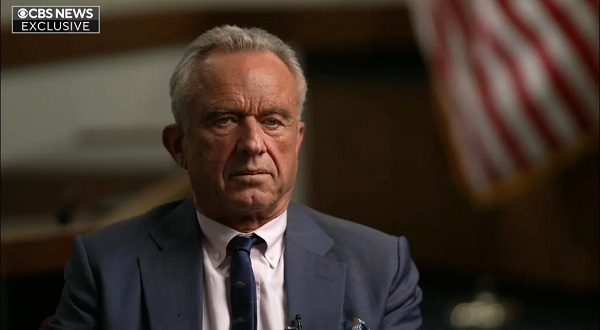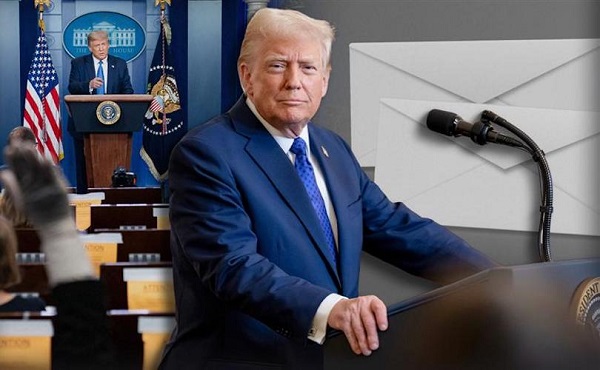National
Furey a major contrast with Trudeau on affordability

From the Canadian Taxpayers Federation
Author: Jay Goldberg
If Canadians want to find an example of a Liberal politician who cares about affordability, they should look to St. John’s, not Ottawa.
Time and time again, Newfoundland and Labrador Premier Andrew Furey has stood on the side of taxpayers.
The latest example is his government’s decision to extend its 8.05 cent per litre gas tax cut for another year.
The gas tax cut has been in place for 21 months and has saved the average two-car Newfoundland and Labrador family more than $800. Another 12 months of lower gas prices will see family savings soar to more than $1,000.
Furey first announced the temporary tax cut in June 2022 and has now extended it twice.
The Furey government has also spoken out strongly about the detrimental impact of the carbon tax on Newfoundlanders and Labradorians.
In criticizing the Trudeau government’s carbon tax late last year, Furey noted “there is no subway” for his constituents to take as an alternative to the ever-increasing costs of driving a car to get to work or to bring kids to school.
That comment was a jibe at the infamous remarks federal Finance Minister Chrystia Freeland made when encouraging Canadians who can’t afford to pay the carbon tax to bike or take transit.
Furey noted if rural Canadians don’t have other transit options – and many don’t – then “the fundamental premise on which the [carbon tax] is based is flawed.”
Furey was also a leader in calling on Trudeau to take the carbon tax off all home heating, noting repeatedly that heating one’s home in Canada in the winter is not optional.
Under pressure, Trudeau finally did so through a temporary suspension of the carbon tax on home heating oil, which is a popular method of home heating in Atlantic Canada, but not in other regions of the country.
To Furey’s credit, he continued to call on the federal government to offer relief to Canadians who don’t use furnace oil for home heating.
Juxtapose that against the policies of Prime Minister Justin Trudeau.
Without campaigning on it, Trudeau sprung a carbon tax on Canadians in 2019. He’s increased it every year since. And he plans to keep jacking it up every year until 2030.
Trudeau has tried to sell his policies by claiming most Canadians are getting more money back from carbon tax rebates than they pay in carbon taxes. Many of Trudeau’s allies have suggested that somehow the carbon tax actually is an affordability measure.
But the Parliamentary Budget Officer has laid out the truth: the average Canadian family is losing money from the carbon tax, big time.
The average Newfoundland and Labrador family lost $347 from the carbon tax last year, even after the rebates. That’s set to climb to $1,316 a year by 2030.
For years, Trudeau told us families would be better off with the carbon tax. But after pressure from Furey and other Atlantic Canadian politicians, he temporarily removed the carbon tax on home heating oil for the next three years.
If that’s not a mea culpa that the carbon tax makes life less affordable, then Santa Claus and the Easter Bunny must be real.
The broader contrast between Furey and Trudeau is their approach to cost of living. Furey looks at what’s taking cash out of families’ wallets – gas and carbon taxes – and tries to lessen that burden by fighting for lower taxes. Trudeau’s solution to make life more affordable appears to be more taxes, more spending and more debt.
The bottom line is that Trudeau, who is sinking in the polls and faces frustrated taxpayers from coast to coast, should learn a thing or two from Furey. Canadians want life to be more affordable, and that means lowering the tax burden, not increasing it.
2025 Federal Election
Taxpayers urge federal party leaders to drop home sale reporting to CRA

Party leaders must clarify position on home equity tax
The Canadian Taxpayers Federation is calling on all party leaders to prove they’re against home equity taxes by pledging to immediately remove the Canada Revenue Agency reporting requirement on the sale of primary residences.
“Canadians rely on the sale of their homes to pay for their golden years,” said Carson Binda, CTF B.C. Director. “After the government spent hundreds of thousands of dollars flirting with home taxes, taxpayers need party leaders to prove they won’t tax our homes by removing the CRA reporting requirement.”
Right now, the profit you make from selling your home is exempt from the capital gains tax. However, in 2016, the federal government mandated that Canadians report the sale of their homes to the CRA, even though it’s tax exempt.
The Canada Mortgage and Housing Corporation also spent at least $450,000 to study and influence public opinion in favour of home equity taxes. The report recommended a home equity tax targeting the “housing wealth windfalls gained by many homeowners while they sleep and watch TV.”
“A home equity tax would hurt seniors saving for their golden years and make homes more expensive for younger generations,” Binda said. “If the federal government isn’t planning on imposing a home equity tax, then Canadians shouldn’t be forced to report the sale of their home to the CRA.”
2025 Federal Election
‘Sadistic’ Canadian murderer claiming to be woman denied transfer to female prison

From LifeSiteNews
The logical decision to house the male murderer with men flies in the face of the Liberal Party’s official stance, which is to incarcerate prisoners according to their ‘self-identified’ gender.
A Canadian man who butchered his family and now claims to be a woman will not be allowed to transfer to a female prison.
On April 8, Correctional Services Canada (CSC) announced that Mohamad Al Ballouz, who brutally murdered his wife and two children, will be sent to a men’s prison, despite claiming to be a woman, according to CTV News.
“When there are overriding health and safety concerns, the request is denied and alternatives are put in place to meet the offender’s gender‑related needs at the institution where they are incarcerated,” the CSC statement reads.
Following an assessment of Al Ballouz request, CSC confirmed that he “will be incarcerated in a men’s institution.”
On December 16, Al Ballouz, a 38-year-old from Quebec, was found guilty second-degree murder of his wife Synthia Bussières, first-degree murder of five-year-old Eliam and two-year-old Zac, and one count of attempted arson.
Crown prosecutor Éric Nadeau revealed that the murder took place in September 2022 when Al Ballouz slaughtered his family at their Brossard apartment. He stabbed his wife 23 times before suffocated his children and trying to set the apartment on fire. He then ingested windshield washer fluid, which is believed to have been a suicide attempt.
During the trial, Quebec Superior Justice Eric Downs described Al Ballouz, as having a “sadistic character” and being “deeply narcissistic.” He was sentenced to life imprisonment with no chance of parole for 25 years.
Throughout the trial, Al Ballouz, a biological male, claimed to be a woman and demanded that he be referred to as “Levana,” a change which was made after he was charged for his crimes. Notably, the Canadian Broadcasting Report’s (CBC’s) report of the case refers to the convicted murder as “she” and uses his fake name.
Following his sentencing, the murderer requested to be sent to the Joliette Institution for Women; however, Downs responded that is a decision for Correctional Service Canada.
Currently under the Liberal Party, the policy is to place prisoners according to their “self-identified” gender, not according to biology. As a result, male rapists and murderers can be sent to prison with females.
However, Al Ballouz’s case caused an uproar on social media as many pointed out that putting the murderer in a women’s prison would pose a danger to female inmates.
Conservative Party leader Pierre Poilievre has condemned the Liberal policy and promised that he would end this practice if elected.
“Surreal: A man who killed his wife and two kids now claims he is a woman to go to a female prison,” he wrote in a December 22 post on X.
“I can’t believe I have to say this: but when I’m PM, there will be no male prisoners in female jails,” Poilievre continued. “Period.”
-

 2025 Federal Election2 days ago
2025 Federal Election2 days agoResearchers Link China’s Intelligence and Elite Influence Arms to B.C. Government, Liberal Party, and Trudeau-Appointed Senator
-

 Business2 days ago
Business2 days agoTimeline: Panama Canal Politics, Policy, and Tensions
-

 COVID-192 days ago
COVID-192 days agoFauci, top COVID officials have criminal referral requests filed against them in 7 states
-

 2025 Federal Election2 days ago
2025 Federal Election2 days agoPoilievre Announces Plan To Cut Taxes By $100,000 Per Home
-

 Health2 days ago
Health2 days agoRed Deer Hospital Lottery – Previous Supporter Draw Deadline!
-

 Health2 days ago
Health2 days agoRFK Jr. Shuts Down Measles Scare in His First Network Interview as HHS Secretary
-

 Bjorn Lomborg2 days ago
Bjorn Lomborg2 days agoThe stupidity of Net Zero | Bjorn Lomborg on how climate alarmism leads to economic crisis
-

 International2 days ago
International2 days agoTrump White House will ignore reporter emails that include ‘preferred pronouns’ in signature






